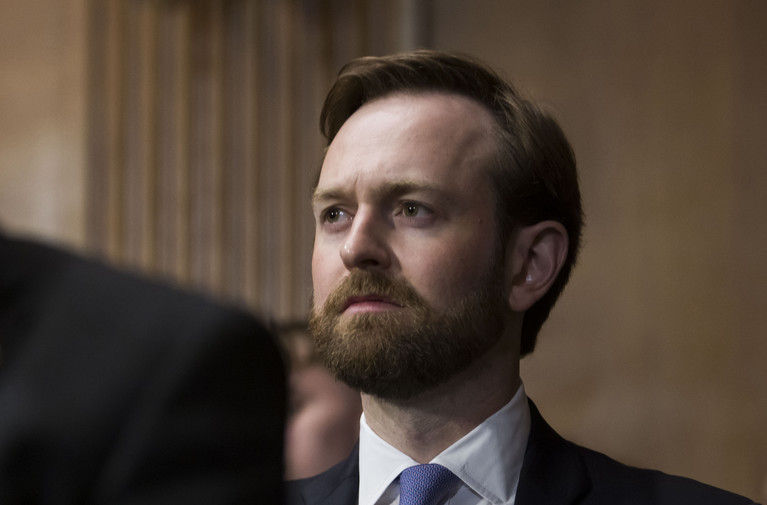Brussels and London Law Firms Rebuke FTC Chair Over EU, UK Tech Law Claims
Brussels, Belgium — August 23, 2025 — A coalition of prominent law firms from Brussels and London has issued a sharp rebuke to U.S. Federal Trade Commission (FTC) Chair Andrew Ferguson, urging him to “get your facts straight” following his claims that compliance with EU and UK digital content regulations could violate U.S. laws. The statement, reported by Benzinga and amplified in posts on X by @lawdotcom and @CorpCounsel on August 22 and 23, 2025, accuses Ferguson of misrepresenting the EU’s Digital Markets Act (DMA) and Digital Services Act (DSA) as well as UK tech regulations, escalating transatlantic tensions over tech policy.
Ferguson’s Controversial Remarks
In a speech in Washington, D.C., on August 21, 2025, Ferguson argued that tech companies’ efforts to comply with EU and UK digital content rules could breach U.S. laws if they compromise American users’ privacy and data security. He specifically criticized the DMA, likening it to a “tax on U.S. companies” and expressing suspicion that it was designed to target American tech giants like Apple, Meta, and Google. “I am very suspicious of laws that appear to have been written to get at American companies abroad,” Ferguson stated, as reported by POLITICO.
These remarks, made amid ongoing EU-U.S. trade negotiations and heightened scrutiny of Big Tech, have drawn ire from European legal and regulatory circles. Ferguson’s comments follow a broader pattern of U.S. criticism of EU tech regulations, with a recent U.S. trade report highlighting the DMA and DSA as potential barriers to American businesses.
European Firms Fire Back
In a joint statement, Brussels- and London-based law firms, including partners from major firms like Cleary Gottlieb and Clifford Chance, accused Ferguson of spreading “misinformation” about the EU’s regulatory framework. “The DMA and DSA are designed to foster competition and protect consumers, not to penalize American companies,” the statement read, emphasizing that the laws apply equally to all major tech firms operating in Europe, regardless of nationality. The firms called on Ferguson to clarify his statements and engage in constructive dialogue rather than escalating transatlantic disputes.
The statement also defended the UK’s tech regulations, such as the Online Safety Act, which aims to regulate digital content and protect users from harmful material. The firms argued that these laws align with global standards for consumer protection and data privacy, dismissing Ferguson’s claims as “unfounded and inflammatory.” Posts on X, such as one by @RecorderTweets on August 23, 2025, echoed this sentiment, framing Ferguson’s remarks as a “misstep” that risks undermining U.S.-EU cooperation on tech regulation.
Transatlantic Tensions and Trade Context
Ferguson’s comments come at a delicate moment in EU-U.S. relations, as both sides navigate a contentious trade landscape. On July 29, 2025, a U.S.-EU trade deal was signed, imposing 15% tariffs on most European imports—down from a threatened 30%—but European leaders, including French Prime Minister François Bayrou and Hungarian Premier Viktor Orbán, criticized the agreement as lopsided. The EU is also bracing for potential retaliatory tariffs, with plans to target €95 billion in U.S. goods if negotiations falter, as reported by Euractiv.
The dispute over tech regulations adds fuel to these tensions. EU Competition Chief Teresa Ribera, during a recent visit to Washington, emphasized the bloc’s commitment to enforcing the DMA, rejecting U.S. pressure to soften its stance. “If a U.S. company active in the EU is found to be in breach of EU rules, we will not be pressured into turning a blind eye,” a Commission spokesperson told The Wall Street Journal. Ribera’s discussions with Ferguson and other North American officials highlighted the growing friction, with some analysts warning that tech regulation could become entangled in broader geopolitical disputes.
Broader Implications
The clash underscores a deepening divide over how to regulate Big Tech. The EU’s DMA, which allows fines of up to 10% of a company’s global revenue for violations, targets “gatekeeper” platforms to curb monopolistic practices. Critics in the U.S., including Republican lawmakers like Scott Fitzgerald, have warned that such regulations could drive tech giants like Apple and Meta out of the EU market, as reported by Brussels Signal on July 28, 2025. Meanwhile, European regulators argue that their laws promote fair competition and protect consumers, aligning with global trends toward stricter oversight of tech firms.
Legal experts suggest that Ferguson’s remarks may reflect domestic political pressures, particularly from Trump administration advisors with ties to the tech industry. “The advisors to Trump now are some of the tech oligarchs, so these people are participating directly in the negotiations,” said Tommaso Valetti, a former European Commission economist, in The Wall Street Journal. This dynamic complicates efforts to harmonize transatlantic tech policies, with GCs and corporate legal teams increasingly navigating a politically charged climate when selecting counsel, as noted in related coverage by Law.com.
Looking Ahead
The Brussels and London law firms’ response signals a push for dialogue over confrontation, urging the FTC to clarify its stance and engage with EU and UK regulators. However, with trade talks ongoing and the DMA’s enforcement actions against companies like Apple and Meta pending, tensions are likely to persist. The EU’s trade chief, Maroš Šefčovič, is set to meet U.S. officials in Washington to address tariff concerns, with tech regulation expected to be a key topic.
As the transatlantic debate over tech policy intensifies, stakeholders on both sides are bracing for further developments. Posts on X, including one by @lawdotcomINTL on August 22, 2025, highlight the urgency of resolving these disputes to maintain cooperation. For now, the call for Ferguson to “get his facts straight” underscores the need for clearer communication to bridge the gap between U.S. and European approaches to regulating the tech industry.
